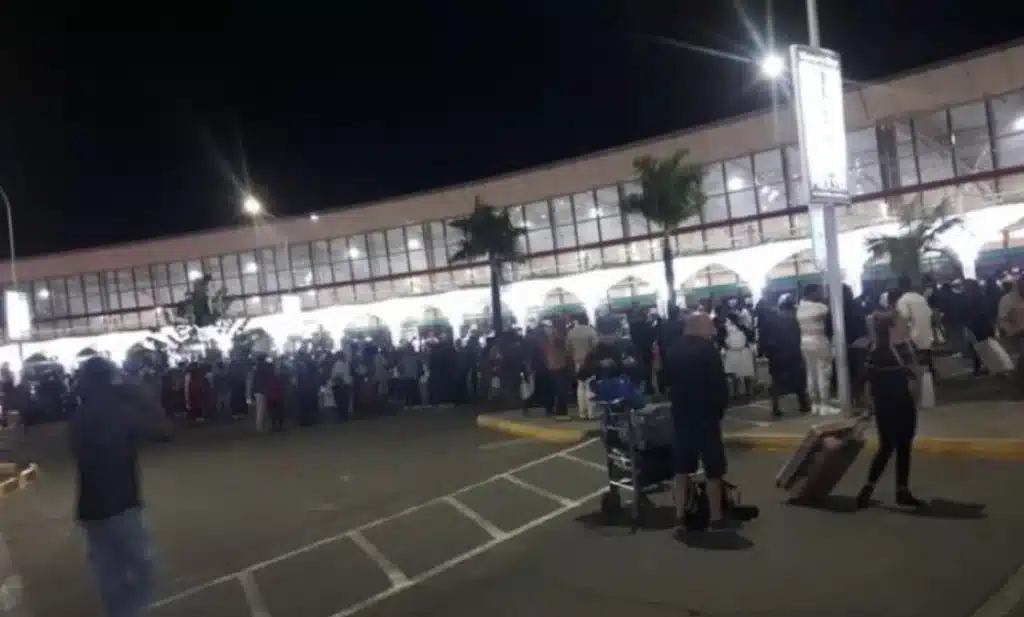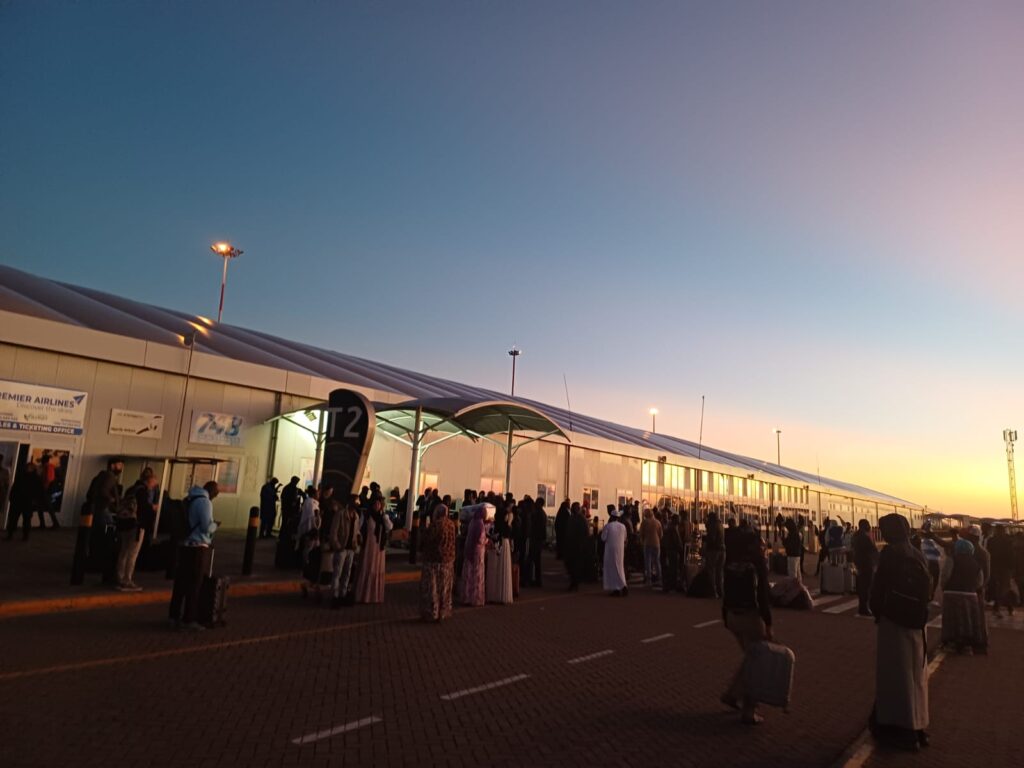Operations at Jomo Kenyatta International Airport (JKIA) were paralyzed on Tuesday night and Wednesday due to a go-slow initiated by a section of aviation workers. This disruption led to long queues of stranded travelers, delayed boarding, and numerous canceled flights, prompting outrage among those affected.

Many passengers found themselves unable to board flights, with some resorting to alternative travel methods. One traveler bound for Eldoret reported, “They are not checking in travelers because of the strike. I have decided to go by road.”
The strike stems from growing discontent among aviation workers following a notice issued by the Kenya Aviation Workers Union (KAWU) on August 12. The union strongly opposes the proposed leasing of JKIA to the Indian conglomerate Adani Group, citing concerns about potential layoffs, foreign worker influx, and worsening working conditions.
KAWU Secretary General Moss Ndiema has called for the resignation of the Kenya Airports Authority (KAA) Board of Directors and three senior managers, alleging incompetence in handling the leasing agreement. A temporary reprieve occurred when KAWU postponed the strike for seven days on August 31 after KAA partially conceded to provide requested documents. However, with no significant follow-up from Kenya Airways or KAA, workers resumed their protests ten days later.

KAWU has made it clear that they will only reconsider their strike if the proposed sale of JKIA is completely abandoned and the KAA board and certain managers resign.
This labor action coincides with a High Court ruling that temporarily halted the leasing agreement after a lawsuit filed by the Kenya Human Rights Commission (KHRC) and the Law Society of Kenya (LSK). The petitioners argue that the deal undermines good governance and accountability, as JKIA is a strategic national asset.
The proposed 30-year lease, valued at Sh246 billion, includes plans for upgrading the airport, constructing a second runway, and building a new passenger terminal. The government has defended the deal, stating that JKIA is operating beyond its capacity and urgently requires modernization, which they claim they cannot fund due to fiscal constraints.




